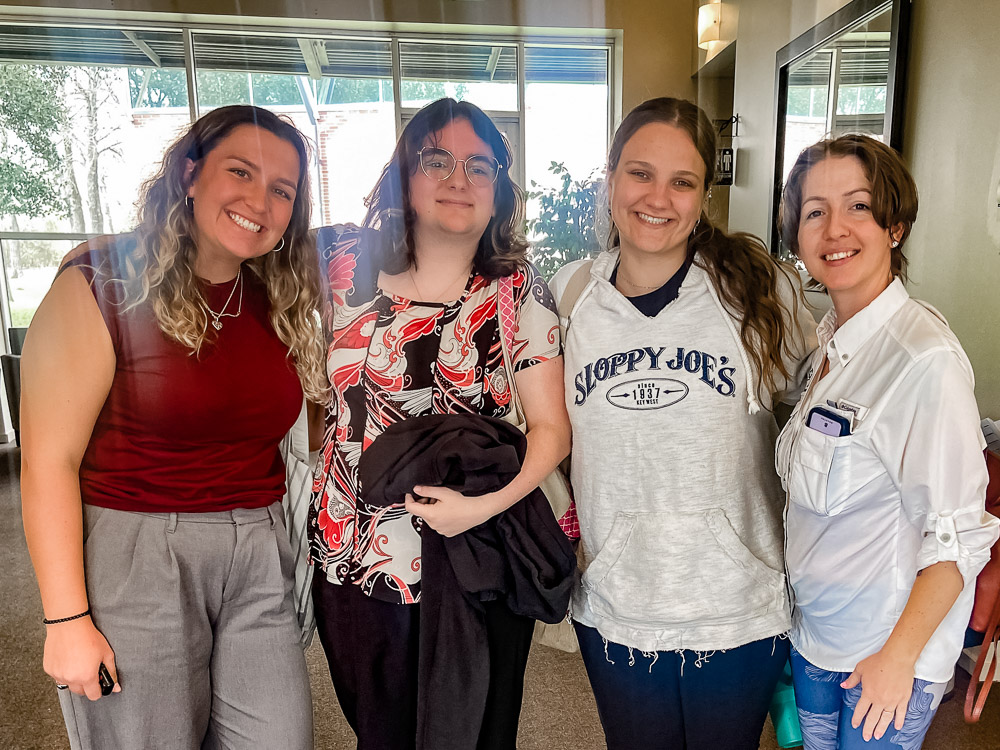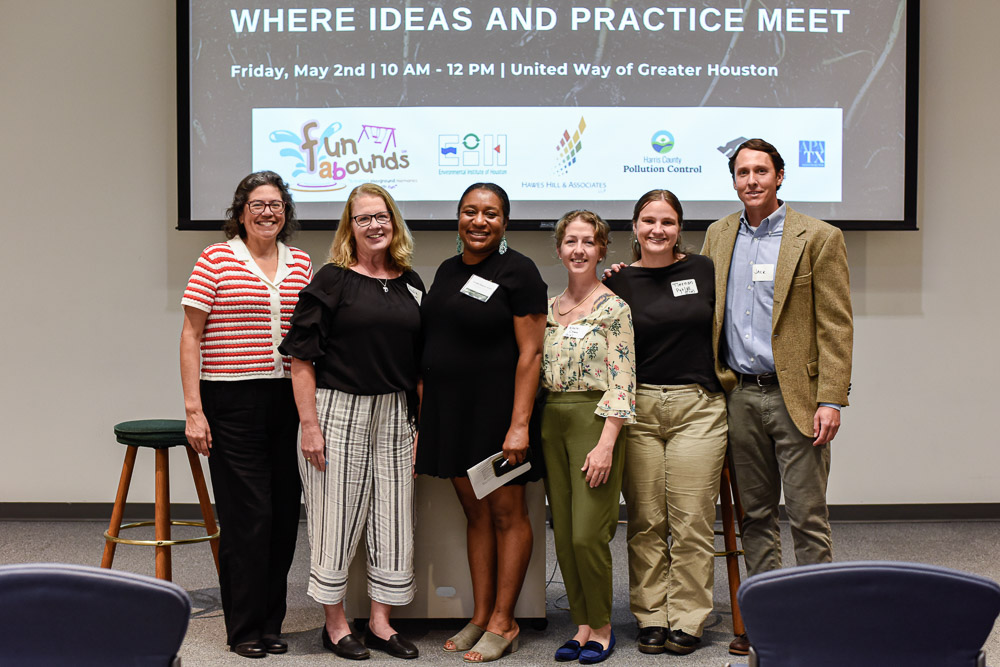
Research Notes
Digging Deep into Soil Health
By Kaylei Chau, Research Associate, and Tiernan Pytlak, Graduate Research Assistant

This summer, the Environmental Institute of Houston is coordinating a pilot study funded by the Harris County Soil and Water Conservation District titled Preliminary, Baseline Soil and Vegetation Analyses in Areas with Native Plant Communities. The study will assess two bioswales and two constructed wetlands owned by the Harris County Flood Control District, comparing them to adjacent grass-lined ditches that are routinely mowed and not actively planted with native species. Vegetation surveys and soil samples will help lay the foundation to determine whether a greater diversity of native plants contributes to improved soil health. Samples will be analyzed by the Texas A&M AgriLife Extension lab for soil micronutrients, boron, organic matter, salinity, and texture.
In preparation, EIH researchers have been actively engaging in educational opportunities centered on soil health. On March 4, the team attended an all-day workshop emphasizing the importance of soil health in our community. The event, Dig Deeper into Soil Health – A Workshop Focused on Urban and Suburban Landscapes, was hosted by the Texas A&M AgriLife Extension in Mont Belvieu and covered topics such as soil health principles, water infiltration and retention in soil, green stormwater infrastructure, soil health strategies, the importance of planting native plants, and the restoration of undeveloped land into a productive ecosystem.
Then, on April 29, the team attended the Dig Deeper into Soil Health follow-up field day, which featured speakers from the Houston Parks and Recreation Department, Wildlife Habitat Federation, and the USDA-Natural Resource Conservation Service. This event showcased three field sites—Sylvan Rodriguez Park, Almeda Road Nature Reserve, and Reveille Park—and illustrated how each site addressed the six principles of building healthy soils: 1) protecting the soil to minimize heat damage, reduce bare ground, and increase infiltration rate; 2) reducing biological, mechanical, and chemical disturbances; 3) “feeding” the soil year-round; 4) optimizing soil composition based on land management goals; 5) promoting plant diversity with a focus on native species; and 6) incorporating livestock where applicable.

Additionally, on May 2, as a continuing Bayou Innovator, EIH participated in the Bayou Preservation Association’s 2025 Spring Symposium Series: Confluence – Where Ideas and Practice Meet. The symposium’s theme, The Groundwork for Tomorrow: Soil, Growth, and Resilience, reflected the importance of balancing human and environmental needs and focused on practical, site-specific solutions—such as green infrastructure, live staking, erosion matting, cover crops, biostabilization, vegetation and soil protection zones, and on-site composting.
These recent learning opportunities and events have helped prepare EIH staff and students for the upcoming pilot study with the Harris County Soil and Water Conservation District. The combined insights will support data collection and analysis and contribute to a better understanding of how native plant diversity may improve soil health in managed landscapes.






